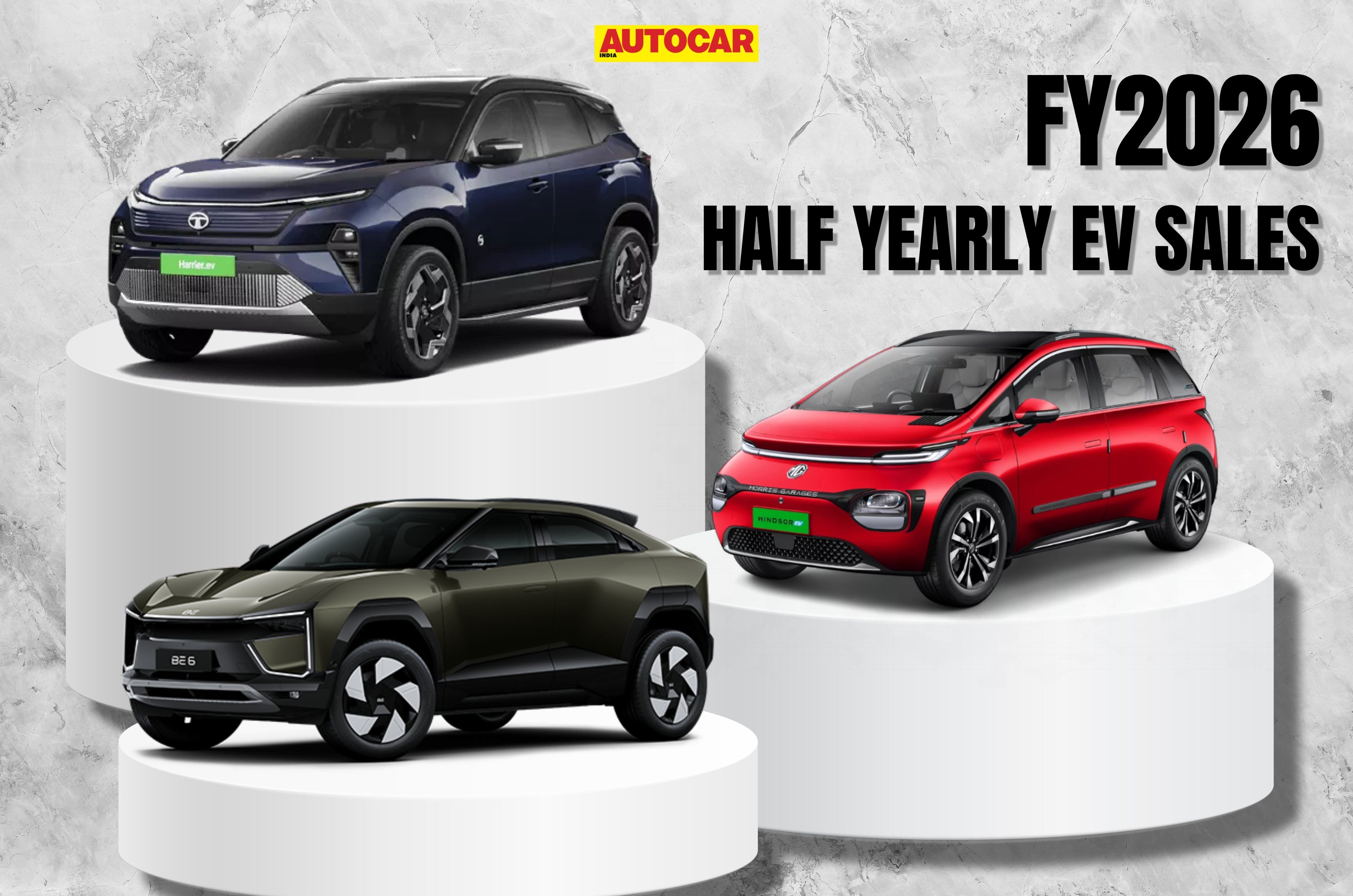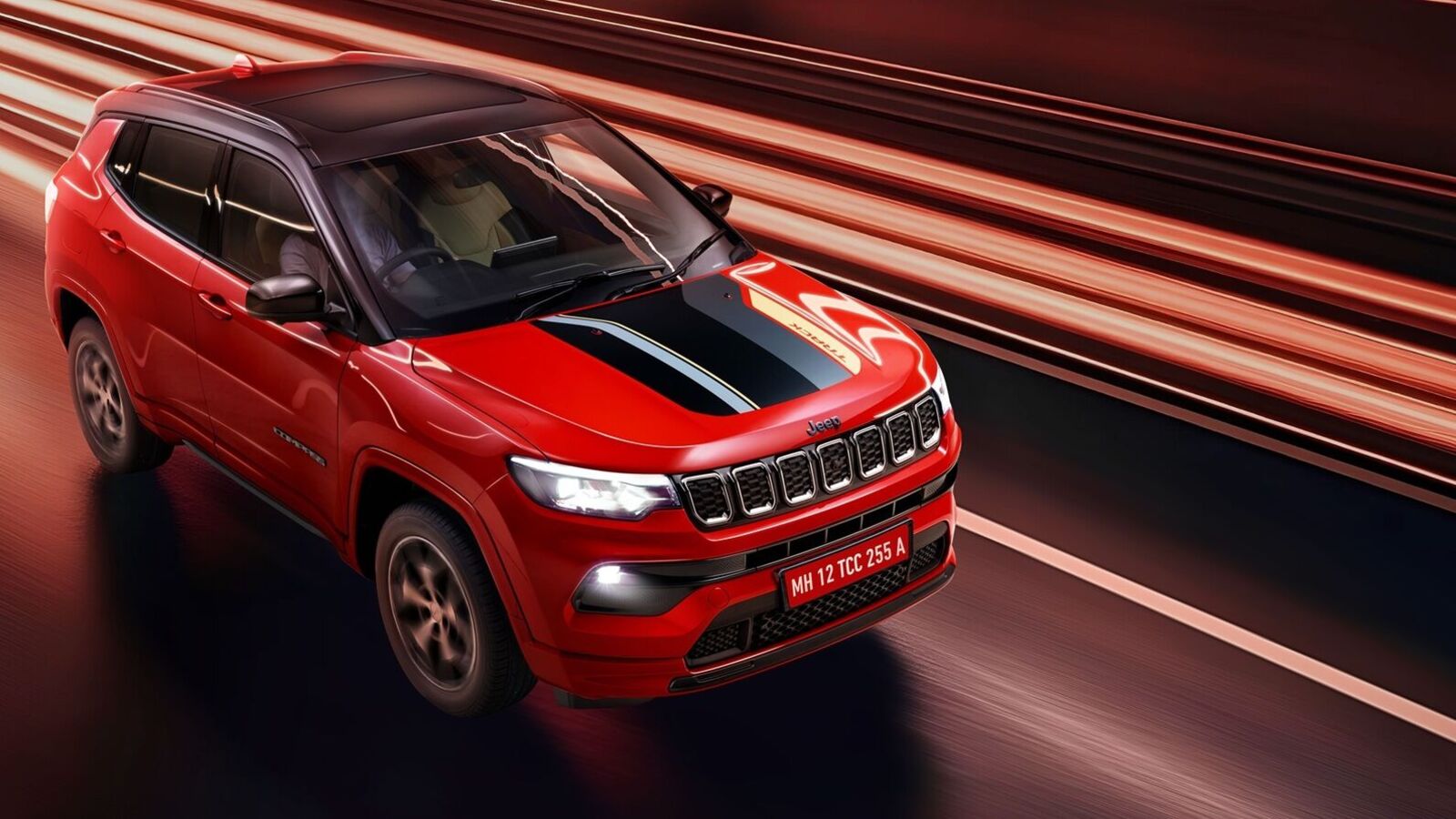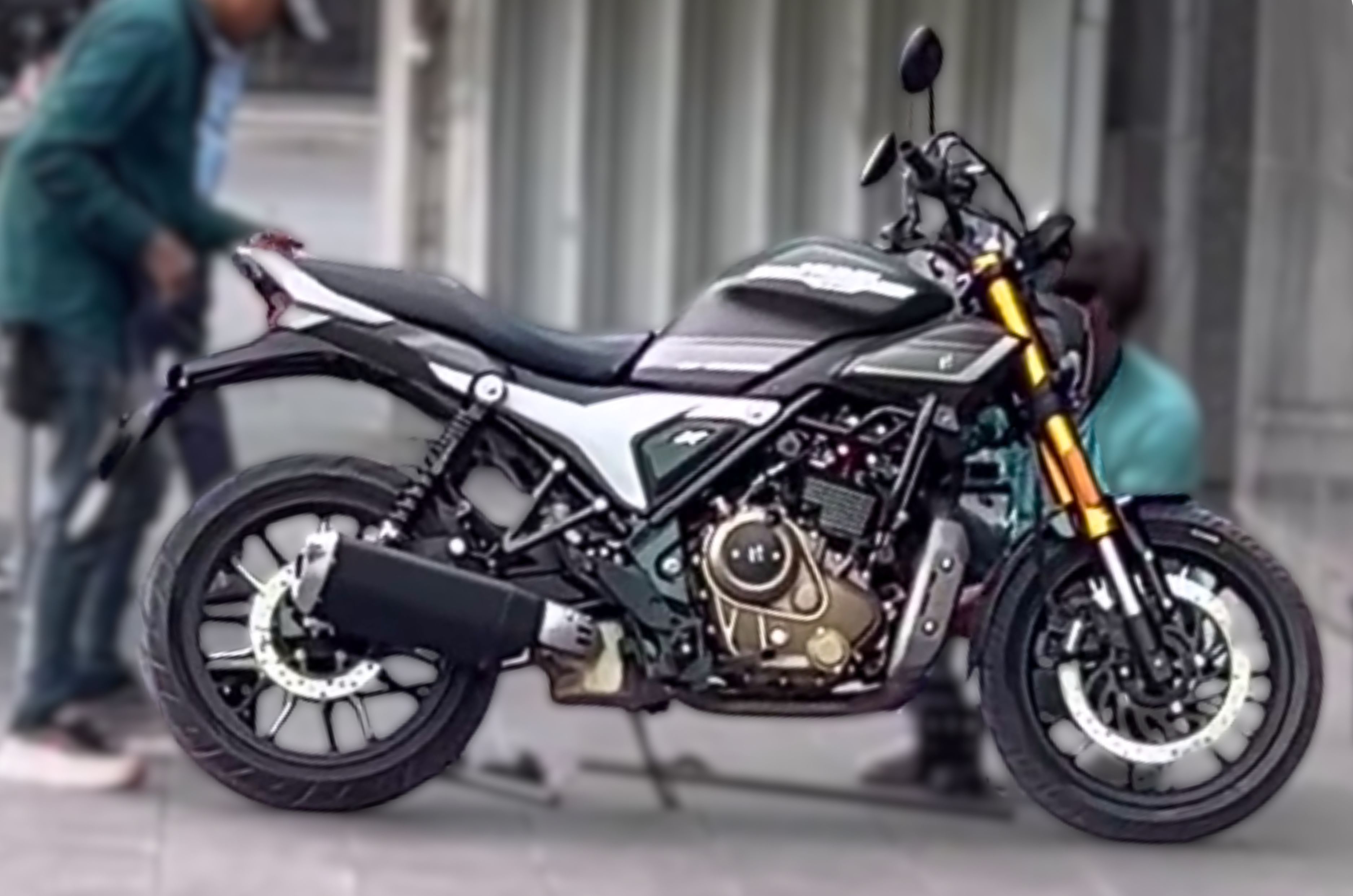
India’s electric vehicle (EV) market has registered record half-yearly performance. Retail sales grew 108 percent year-on-year to 91,076 units in H1 FY2026 (April-September 2025), compared to 43,847 units in the same period last year. The segment has already achieved nearly 84 percent of FY2025’s full-year total of 1,08,609 units, suggesting continued demand into the festive period.
- EV H1 FY2026 sales up 108 percent to 91,076 units
- Tata leads; JSW MG and Mahindra cross 50 percent share
- Luxury EVs hit 2,375 units with BMW at 64 percent share
Total EV sales in September 2025
GST cuts narrow price gap, but EV sales are still powering towards 1,75,000.
| Total EV sales in H1 FY2026 | |||
|---|---|---|---|
| Month | FY 2026 sales (units) | FY 2025 sales (units) | Change (%) |
| April | 13,377 | 7,713 | 73 |
| May | 13,282 | 7,953 | 67 |
| June | 14,007 | 7,271 | 93 |
| July | 16,270 | 7,978 | 104 |
| August | 18,369 | 6,764 | 172 |
| September | 15,771 | 6,168 | 156 |
| TOTAL | 91,076 | 43,847 | 108 |
*As of October 11, 2025
The table above shows that EV sales peaked in August 2025 with a record 18,369 units. September volumes, however, dropped 14 percent to 15,771 units, a slowdown linked to the recent GST cuts on ICE/hybrids that narrowed the price gap with EVs. With new models supporting underlying demand, the segment remains on track for a strong year, projecting a total volume of around 1,75,000 units by March 2026.
EV sales by carmaker
| EV sales by carmaker in H1 FY 2026 | |||||
|---|---|---|---|---|---|
| Carmaker | H1 FY 2026 | H1 FY 2025 | Change (%) | H1 FY 2026 Market Share (%) | H1 FY 2025 Market Share (%) |
| Tata | 34,586 | 28,216 | 23 | 37.97 | 64.35 |
| MG | 26,640 | 8,329 | 220 | 29.25 | 18.99 |
| Mahindra | 19,436 | 3,078 | 531 | 21.34 | 7.01 |
| Hyundai | 3,558 | 387 | 819 | 3.90 | 0.88 |
| BYD | 2,975 | 1,337 | 123 | 3.26 | 3.04 |
| BMW | 1,510 | 455 | 232 | 1.65 | 1.03 |
| Kia | 1,141 | 117 | 875 | 1.25 | 0.26 |
| Mercedes | 553 | 419 | 32 | 0.60 | 0.95 |
| Citroen | 359 | 1,165 | -69 | 0.39 | 2.65 |
| Volvo | 192 | 223 | -14 | 0.16 | 0.50 |
| Tesla | 69 | – | – | 0.07 | |
| Porsche | 26 | 29 | -10 | 0.02 | 0.06 |
| Audi | 15 | 82 | -82 | 0.01 | 0.18 |
| Rolls-Royce | 8 | 7 | 14 | – | – |
| Vinfast | 6 | – | – | – | – |
| JLR | 2 | 3 | -33 | ||
| TOTAL | 91,076 | 43,847 | 108 | 100 | 100 |
*As of October 10, 2025
Tata Motors: 34,586 units, up 23 percent YoY
Tata Motors remains the leader with 34,586 units in April-September 2025, up 23 percent year on year from 28,216 units in H1 FY2025. The portfolio now spans the Punch, Nexon, Currv, Harrier, Tiago and Tigor in EV form, and monthly volumes have firmed up since the Harrier EV’s rollout in July. Even so, market share has compressed to about 40 percent versus roughly 64 percent a year ago. The sharper pressure comes from JSW MG Motor India and Mahindra, whose combined share has risen to around 50 percent from about 26 percent in H1 FY2025.
MG Motor India: 26,640 units, up 220 percent YoY
JSW MG Motor India delivered 26,640 EVs in H1 FY2026, up 220 percent year on year from 8,329 units in H1 FY2025, with the step-up helped by the Windsor and the brand’s battery-as-a-service option. This lifted the brand’s market share to about 29 percent, from roughly 19 percent last year. The range now spans the Comet and ZS EV, and extends into the premium bracket with the M9 MPV and Cyberster roadster, retailed via the MG Select network to separate higher-end demand from the core line-up.
Mahindra: 19,436 units, up 531 percent YoY
Mahindra’s EV momentum has accelerated with the BE 6 and XEV 9e joining the XUV400 earlier this year, lifting its retail performance through H1 FY2026. Between April and September 2025, deliveries totalled 19,436 e‑SUVs, with the BE 6 and XEV 9e contributing most of the volume versus 3,078 units a year earlier, an increase of 531 percent and an increment of 16,358 units. This surge has taken Mahindra’s EV share to about 21 percent, up from roughly 7 percent in H1 FY2025.
Hyundai: 3,558 units, up 819 percent YoY
Hyundai Motor India ranks fourth among EV makers, with 3,558 units in H1 FY2026, an 819 percent jump on a low base of 387 units of Ioniq 5 a year ago. The mid‑January launch of the Creta Electric has pushed Hyundai past BYD in half‑year EV totals, even as initial market response to the Creta Electric remains measured versus the ICE Creta’s strong pull. With the Creta still India’s top midsize SUV overall, the response of its electric derivative is tepid. Hyundai’s EV share has risen to about 4 percent, up from roughly 1 percent in H1 FY2025.
BYD: 2,975 units, up 123 percent YoY
BYD India delivered 2,935 EVs in H1 FY2026, up 123 percent year on year, led by the Atto 3, Seal, eMax 7 and Sealion 7 line-up. It maintains its 3 percent share in a market where retails have doubled over the past year. The brand’s focus remains skewed to premium segments, which supports pricing but caps scale versus mass‑market rivals. Sustained share gains will likely hinge on deeper localisation, a lower entry point, and wider retail reach to tap demand beyond core urban centres.
Kia: 1,141 units, up 875 percent YoY
Kia has risen to seventh among 16 EV makers in H1 FY2026 with 1,141 units, an 875 percent jump on a base of 117 units a year ago. The made‑in‑India Carens Clavis EV, positioned as India’s most affordable 7‑seat electric MPV, is driving the surge, with back‑to‑back highs of 463 units in August and 563 in September. This marks a shift from Kia’s earlier focus on the higher‑priced, imported EV6 and EV9 and moves the brand into a wider volume bracket. Early momentum from the Clavis EV is broadening Kia’s EV footprint and supporting steadier month‑on‑month growth.
Luxury EV sales by carmaker
Luxury carmakers sell 2,375 EVs, up 139 percent YoY.
Luxury EV sales grew 139 percent year on year to 2,375 units in April-September 2025 as premium carmakers expanded their electric portfolios. The period also saw Tesla’s entry, intensifying competition in the luxury electric space.
BMW and Mini: 1,510 units, up 232 percent YoY
BMW led the segment with 1,510 units, a sharp 232 percent rise over last year, giving it a 64 percent share of the luxury EV market, underpinned by strong traction for the iX1 LWB and a broader EV line-up.
Mercedes: 553 units, up 32 percent YoY
Mercedes‑Benz India follows with 553 EVs, up 32 percent year on year, translating to roughly 23 percent luxury EV market share and steady penetration gains within its portfolio.
Volvo ranked third in the luxury EV segment with 192 units sold, down 14 percent year on year. Tesla debuted at fourth with 69 Model Y deliveries, and over 600 bookings. Porsche, Audi, and Rolls-Royce saw slower sales, while newcomer Vinfast delivered six locally assembled VF6 and VF7 SUVs.
Also see:
Ferrari slashes EV forecast as it unveils the ‘Elettrica’s’ powertrain
Tesla rolls out more affordable Model Y, Model 3 variants
Tata Harrier EV, Curvv EV get discounts of up to Rs 1.90 lakh in October



